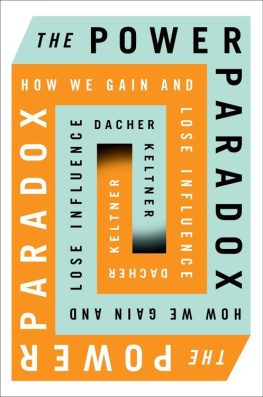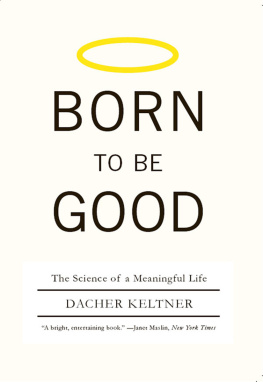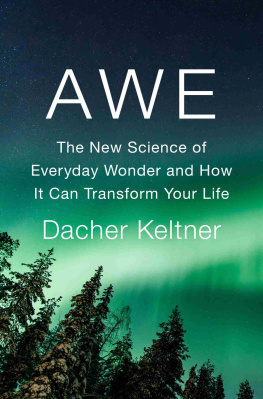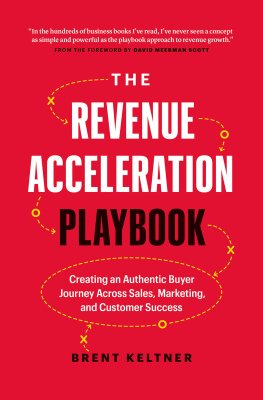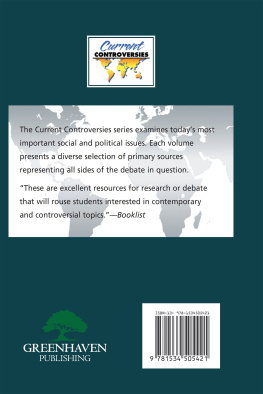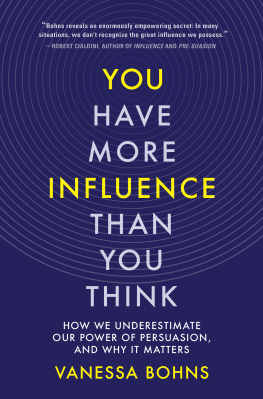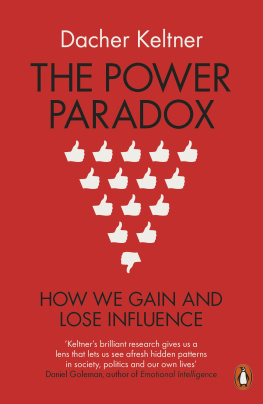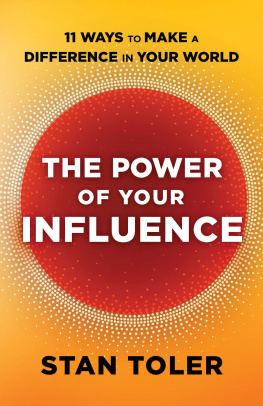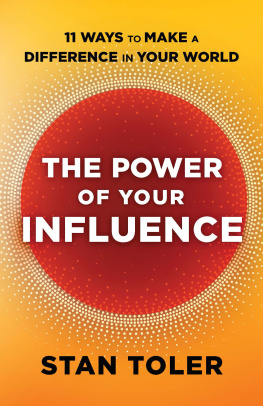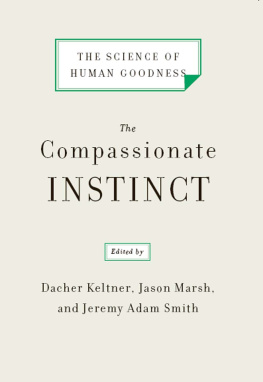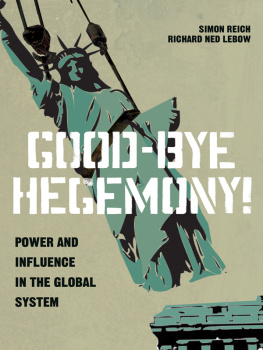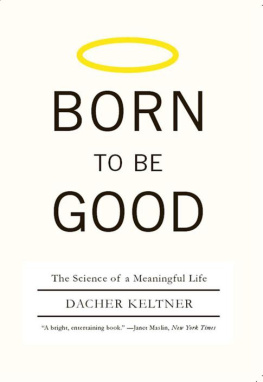Keltner - The Power Paradox: How We Gain and Lose Influence
Here you can read online Keltner - The Power Paradox: How We Gain and Lose Influence full text of the book (entire story) in english for free. Download pdf and epub, get meaning, cover and reviews about this ebook. year: 2016, publisher: Penguin Publishing Group, genre: Politics. Description of the work, (preface) as well as reviews are available. Best literature library LitArk.com created for fans of good reading and offers a wide selection of genres:
Romance novel
Science fiction
Adventure
Detective
Science
History
Home and family
Prose
Art
Politics
Computer
Non-fiction
Religion
Business
Children
Humor
Choose a favorite category and find really read worthwhile books. Enjoy immersion in the world of imagination, feel the emotions of the characters or learn something new for yourself, make an fascinating discovery.
The Power Paradox: How We Gain and Lose Influence: summary, description and annotation
We offer to read an annotation, description, summary or preface (depends on what the author of the book "The Power Paradox: How We Gain and Lose Influence" wrote himself). If you haven't found the necessary information about the book — write in the comments, we will try to find it.
Keltner: author's other books
Who wrote The Power Paradox: How We Gain and Lose Influence? Find out the surname, the name of the author of the book and a list of all author's works by series.
The Power Paradox: How We Gain and Lose Influence — read online for free the complete book (whole text) full work
Below is the text of the book, divided by pages. System saving the place of the last page read, allows you to conveniently read the book "The Power Paradox: How We Gain and Lose Influence" online for free, without having to search again every time where you left off. Put a bookmark, and you can go to the page where you finished reading at any time.
Font size:
Interval:
Bookmark:

PENGUIN PRESS
An imprint of Penguin Random House LLC
375 Hudson Street
New York, New York 10014
penguin.com
Copyright 2016 by Dacher Keltner
Penguin supports copyright. Copyright fuels creativity, encourages diverse voices, promotes free speech, and creates a vibrant culture. Thank you for buying an authorized edition of this book and for complying with copyright laws by not reproducing, scanning, or distributing any part of it in any form without permission. You are supporting writers and allowing Penguin to continue to publish books for every reader.
Illustration credits appear .
ISBN 9781594205248 (hardcover)
ISBN 9780698195592 (ebook)
ISBN 9780735221284 (international edition)
Version_1
To my team at the Berkeley Social Interaction Lab. Without you, I would never have been able to tell this story.


L ife is made up of patterns. Patterns of eating, thirst, sleep, and fight-or-flight are crucial to our individual survival; patterns of courtship, sex, attachment, conflict, play, creativity, family life, and collaboration are crucial to our collective survival. Wisdom is our ability to perceive these patterns and to shape them into coherent chapters within the longer narrative of our lives.
This book is about a pattern of social living that makes up our daily interactions and shapes what our lives will, in the end, amount to. It has profound implications for whether you will have a sexual affair, break the law, suffer from panic attacks, be leveled by depression, die early due to a chronic illness, or find purpose in life and bring it to fruition. This pattern kept appearing in scientific studies Ive conducted over these past twenty years. Its called the power paradox.
The power paradox is this: we rise in power and make a difference in the world due to what is best about human nature, but we fall from power due to what is worst. We gain a capacity to make a difference in the world by enhancing the lives of others, but the very experience of having power and privilege leads us to behave, in our worst moments, like impulsive, out-of-control sociopaths.
How we handle the power paradox guides our personal and work lives and determines, ultimately, how happy we and the people we care about will be. It determines our empathy, generosity, civility, innovation, intellectual rigor, and the collaborative strength of our communities and social networks. Its ripple effects shape the patterns that make up our families, neighborhoods, and workplaces, as well as the broader patterns of social organization that define societies and our current political struggles: sexual violence; bias and discrimination against blacks, Asians, Latinos, and gays; and systemic poverty and inequality. Handling the power paradox well is fundamental to the health of our society.
Twenty years ago, when I began the studies that uncovered the power paradox, I confronted the question: what is power? To outsmart the power paradox, we need to know what power is. The first surprise that my scientific inquiry produced was this: our cultures understanding of power has been deeply and enduringly shaped by one personNiccol Machiavelliand his powerful sixteenth-century book The Prince. In that book the Florentine author argued that power is, in its essence, about force, fraud, ruthlessness, and strategic violence. Following Machiavelli, the widespread tendency has been to think of power as involving extraordinary acts of coercive force. Power was what the great dictators wielded; power was embodied in generals making decisive moves on battlefields, businessmen initiating hostile takeovers, coworkers sacrificing colleagues to advance their own careers, and bullies on the middle-school playground tormenting smaller kids.
But this view of power fails upon careful scrutiny today. It cannot make sense of many important changes in human history: the abolition of slavery, the toppling of dictators, the ending of apartheid, and the rise of the civil rights, womens rights, and gay rights movements, to name just a few. It cannot make sense of the great social changes brought about by medical advances, social media, new laws protecting the less powerful, great films, the birth control pill, radical paintings and novels, and scientific discoveries. Perhaps most critically, thinking of power as coercive force and fraud blinds us to its pervasiveness in our daily lives and the fact that it shapes our every interaction, from those between parents and children to those between work colleagues.
POWER IS ABOUT MAKING A DIFFERENCE IN THE WORLD
Society has changed dramatically since Machiavellis Renaissance Florence in ways that require us to move beyond outdated notions of power. We will be more poised to outsmart the power paradox if we broaden our thinking and define power as the capacity to make a difference in the world, in particular by stirring others in our social networks.
This new definition of power reveals that it is not something limited to rare individuals in dramatic moments of their highly visible livesto malevolent dictators, high-profile politicians, or the jet-setting rich and famous; nor does it exist solely in boardrooms, on battlefields, or on the U.S. Senate floor. Instead, power defines the waking life of every human being. It is found not only in extraordinary acts but also in quotidian acts, indeed in every interaction and every relationship, be it an attempt to get a two-year-old to eat green vegetables or to inspire a stubborn colleague to do her best work. It lies in providing an opportunity to someone, or asking a friend the right question to stir creative thought, or calming a colleagues rattled nerves, or directing resources to a young person trying to make it in society. Power dynamics, patterns of mutual influence, define the ongoing interactions between fetus and mother, infant and parent, between romantic partners, childhood friends, teens, people at work, and groups in conflict. Power is the medium through which we relate to one another. Power is about making a difference in the world by influencing others.
POWER IS GIVEN TO US BY OTHERS
How do we gain powerthe capacity to make a difference in the world? The old Machiavellian philosophy of power treated it as something that is grabbed. Narratives of power grabs make for great literature and artMacbeth, JuliusCaesar, TheGodfather, and, more recently, HouseofCards. It is captivating to read about cunning acts of manipulation and the bloody elimination of rivals and allies. But they are more the stuff of fiction and the past than about how people enact power in the twenty-first century.
Instead, a new wave of thinking about power reveals that it is given to us by others rather than grabbed. We gain power by acting in ways that improve the lives of other people in our social networks. Our power is granted to us by others. This is true at work, in social organizations of different kinds, and in our friendships, romantic partnerships, and families.
In one of the central developments of hominid evolution, vertical hierarchies (seen today among our primate relatives, the great apes) gave way to more horizontal patterns of social organization. The hunter-gatherers who are still around today live in the small groups that were typical of the conditions of human evolution. Within these conditions, we became a hypersocial species, raising profoundly vulnerable offspring, gathering food, creating shelter, and defending ourselves collaboratively and in small groups. Hierarchies were still present as we evolved, but given our hypersociality, individuals could band together in patterns of alliances and readily constrain those who might abuse power. As a result, groups gained the capacity to grant power to those who advanced the greater good rather than to coercive, forceful Machiavellians.
Font size:
Interval:
Bookmark:
Similar books «The Power Paradox: How We Gain and Lose Influence»
Look at similar books to The Power Paradox: How We Gain and Lose Influence. We have selected literature similar in name and meaning in the hope of providing readers with more options to find new, interesting, not yet read works.
Discussion, reviews of the book The Power Paradox: How We Gain and Lose Influence and just readers' own opinions. Leave your comments, write what you think about the work, its meaning or the main characters. Specify what exactly you liked and what you didn't like, and why you think so.

